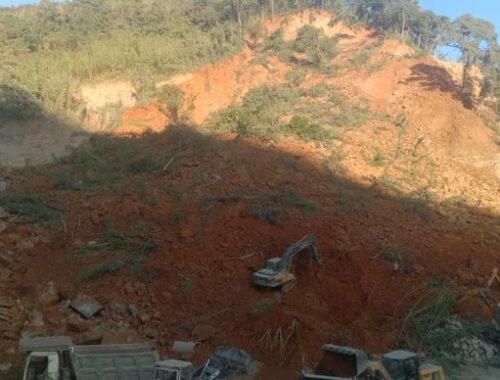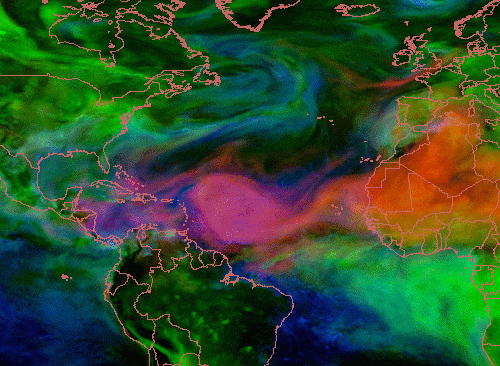These days it is difficult to distinguish the legitimate from the criminal elements, so it is up to the Supreme Court to rebuke and punish the guilty parties.
Hiren Gohain ;
Hearing a PIL for an order to ban mining for oil and coal within the boundaries of the proposed Dehing Patkai tropical rain-forest of Tinsukia district of Assam, and specifically in the Saleki elephant reserve, coming in the wake of the devastating fire at Baghjan oil well, a Supreme Court bench headed by the Chief Justice of India observed that saving the environment should not come at the expense of economic development, while conceding that there should be a balance between the two ends. In their own words, “There has to be some method by which economic development is not retarded as this has a direct impact on poverty in the country.”
The extent of the damage by the accident at the Baghjan well has shaken Assam as never before. All the experts are agreed it is a man-made disaster. Rapacity for oil, the slack supervision in ensuring that proper preventive measures were in place, the casual outsourcing of the work of drilling for gas to a private party called “John Energy”, all the circumstances conspired to bring it about.
The result was not simply irreparable destruction of a wide swathe of forests and water bodies rich in bio-diversity, but permanent and crippling injury to the livelihood of neighbouring villages. Metropolitan readers have little idea of the close symbiosis between humans and such forests in traditional native way of life of Assam. The water-bodies here are not isolated pools but are annually replenished by the Brahmaputra making them rich in feedstock and aquatic life.
That is how the Gangetic Dolphin, which is also a native species here, occurs in them. They naturally provide livelihood to neighbouring villages with inexhaustible supply of fish. Forests around them also grow lush and supply forest-products. All that will now be lost for ever as after such devastation it might take decades for nature to regenerate. Indeed, it might not recover at all from the injury.
Apart from the calamitous fire which experts agree will take more than a month to tame, the explosive eruption of gas condensates for twelve days have polluted the atmosphere for miles around. Leading medical experts are of the firm view that thousands of people who are breathing this toxic air are bound to suffer eventually from severe respiratory and pulmonary ailments putting their lives at risk.
It is unacceptable that rapacious miners of such lush regions of Assam will pack up and leave unceremoniously when all the underground wealth is drained and vast regions turn barren and bleak. It may also be added that a vast army of illegal miners and transporters are working in the shadows under protection of political bosses and a section of the police, particularly in coal mining and trade.
But the way things are proceeding these days it is difficult to distinguish the legitimate from the criminal elements. Their lordships’ remark on probable adverse impact of a ban on such mining on “the poverty of the country” stirs our bemused wonder.
The government has jacked up oil prices seven times in as many months, jacking up prices and hitting the poor hard. Its outlook does not seem to differ from that of oil-crazy companies and illicit miners. The poor in India own a fast diminishing share of the country’s wealth even as their numbers are swelling.
To come back to the moot question, is the balance between development and environment today some fixed ratio which has been maintained voluntarily? Is it not an exceptionally unstable equation continually upset by profit-hungry and unscrupulous entities? There is no technology that can ensure such balance unless and until fossil fuels are totally eliminated and corporate greed curbed.
What we have witnessed today in America is a reversal of an earlier trend towards climate-friendly policy on industrial fuels and a state sponsorship of the highly polluting “fracking technology” in oil production. India seems to be desperate to follow that lead with corporates getting a free hand in mining coal in reckless defiance of ecological norms.
The arbitrary nature of the equation when corporate interest guides the state is demonstrated by the flagrant transgression of environmental concerns by the President of Brazil Jair Bolsonaro, particularly in the Amazon rainforest so often referred to as the “lungs of the global biosphere”. Its huge absorption of carbon has long been seen as the insurance against environmental catastrophe. But in the last two or three decades corporate greed for its mineral resources and land (for profitable use by corporate agribusiness) has encroached on it to such an extraordinary degree as to reduce it by one-third of its size.
Bolsonaro dismisses the threat to the Amazon as cavalierly as the threat of the Covid-19, which has made Brazil one of the worst-affected countries. Corporate greed has not only become a menace; it has a suicidal momentum today.
Hence the honourable judges are expected to deal with destruction of the ecosystem much more seriously, and not only protect the irreplaceable Dehing Patkai rain-forest from further depredation, but sternly rebuke and punish guilty parties for their truly “anti-national” and “ecoterrorist” crimes.
The author is a socio-political commentator and cultural critic. The views are personal




